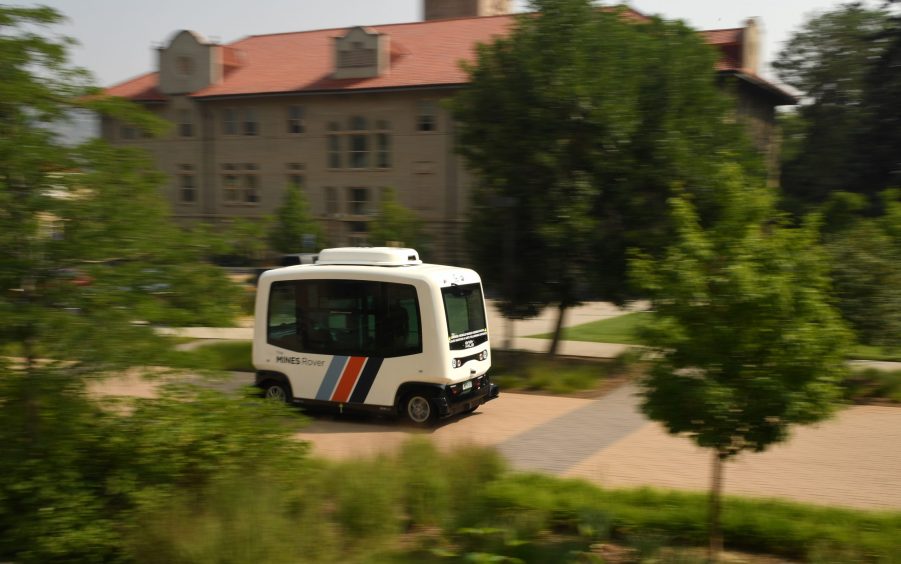
The Mines Rover Is Part of the Nation’s Largest Fleet of Autonomous Vehicles
The Mines Rover represents a big step in EV autonomous vehicle usability. Currently, the Rover is part of the nation’s largest fleet of autonomous vehicles. And yes, before you ask, these vehicles are fully autonomous. They require no driver intervention except in the instance of an emergency. Moreover, they’re designed to only operate at low speeds, replacing shuttles on the Colorado School of Mines campus. Interesting, yes, but how feasible is public autonomous transport? Additionally, are autonomous EVs the way to a cleaner future for Colorado and the rest of the U.S?
What is the Mines Rover?

So, let’s start with exactly what the hell a Mines Rover is. First and foremost, it’s an electric autonomous shuttle, at least according to local news outlet 9News. AvCo is the Colorado-based owner of these Mines Rover shuttles. Obviously, as the “shuttle” part implies, it’ll be used to shuttle drunk Colorado School of Mines students. In principle, the Rover operates just like any other autonomous vehicle (AV) out there.
The Rover uses a series of cameras and sensors to measure precisely where it is and navigate through traffic. Critically, these low-speed AV shuttles will be able to move around on the road as well as through specified routes on campus. As of right now, AvCo has three routes planned for the Golden, Colorado college. However, the brand is looking to expand to other locations in Colorado. Among these are Colorado Springs and Denver’s wealthy Greenwood Village suburb.
Free transit for the masses

Evidently, there’s a lot of benefits to a free EV shuttle. Obviously, the EV part is quite nice. I’m local to Colorado and have been for my whole life. At no point in my memory can I remember wildfire smoke being as dense as it is here. We need EVs like the Mines Rover to help fight climate change, seeing as our Congresspeople are unwilling to implement any other meaningful measures.
Then there’s the benefits of an (assuming functionality as advertised) ever-expanding network of autonomous vehicles. In theory, AVs will be able to navigate traffic better than we will. However, as things sit right now, I’m not sure if that’s the case. The low-speed aspect of the Mines Rover is great for safety, but it could be an issue on-road. I suppose that’s where the trained student operators come in. They’re there to intervene should things get out of hand.
AvCo continues to push for an AV future

As of today, there’s only nine shuttles running along those three routes, but that’s still more than anywhere else. For now, that’s ok. I’d much prefer AvCo to work out the kinks before the Mines Shuttle starts replacing busses in my neighborhood. Let’s see if they can prove me to be nothing more than a cynic.


